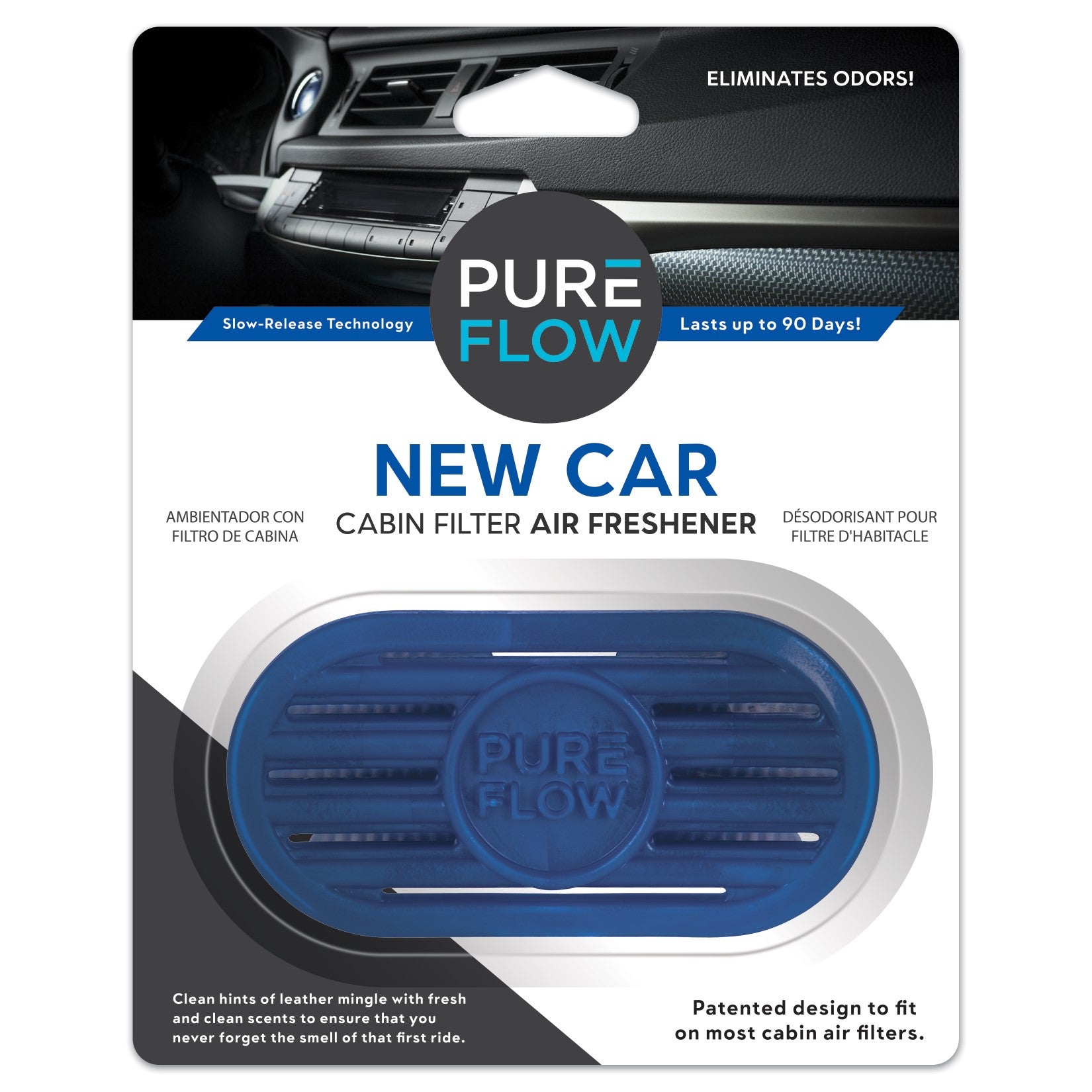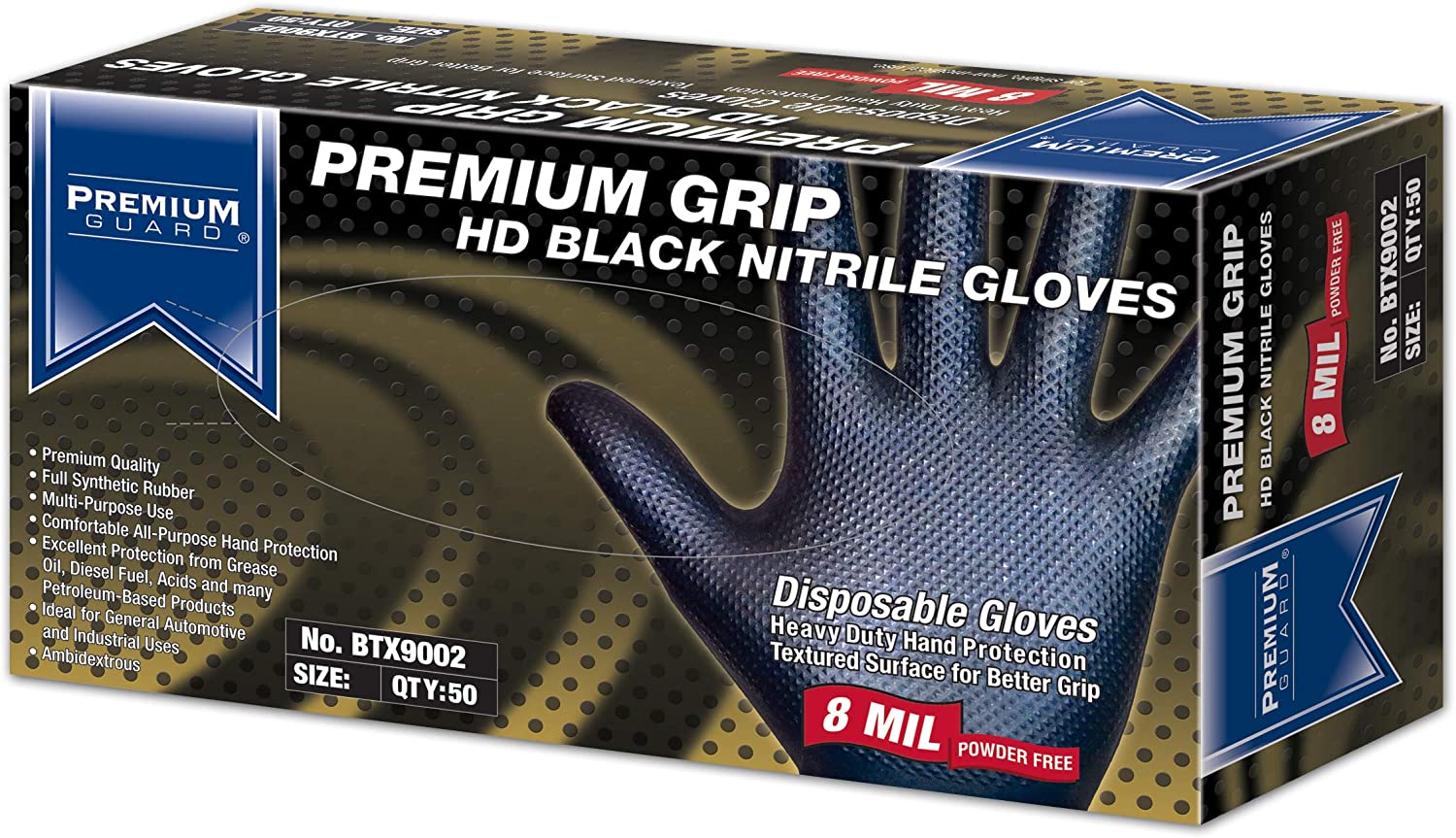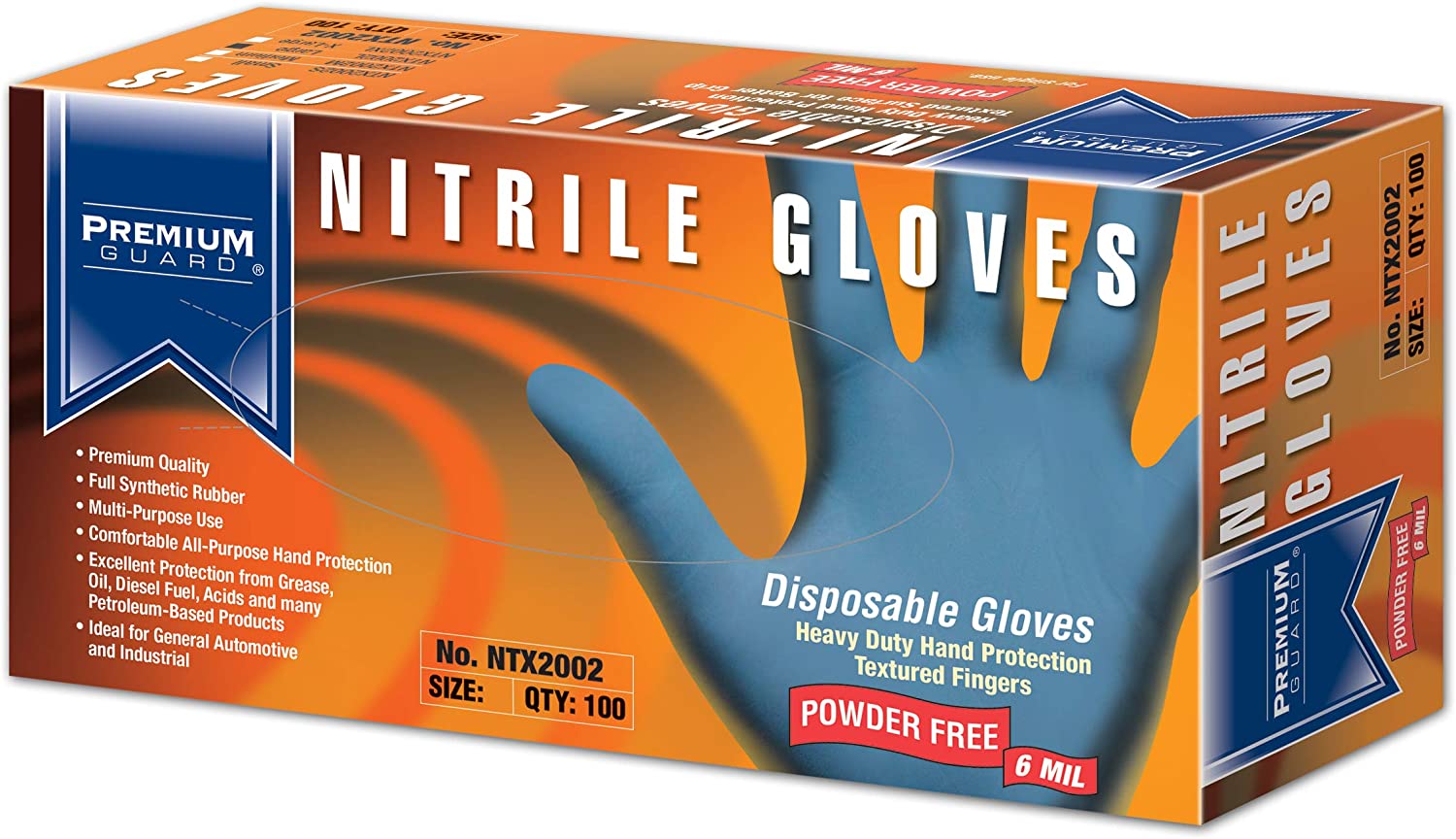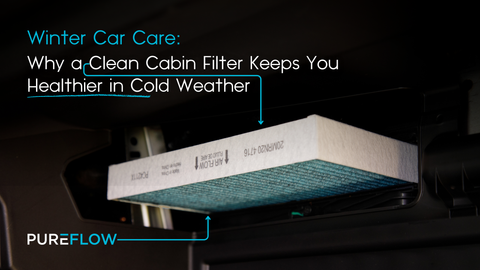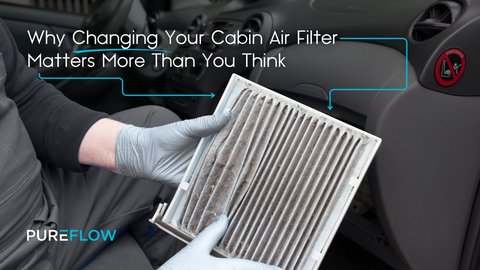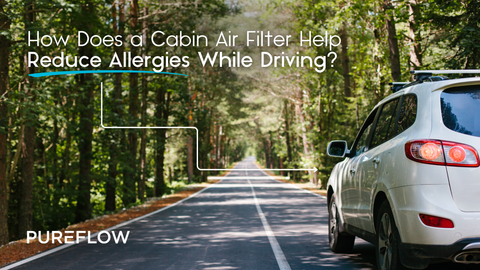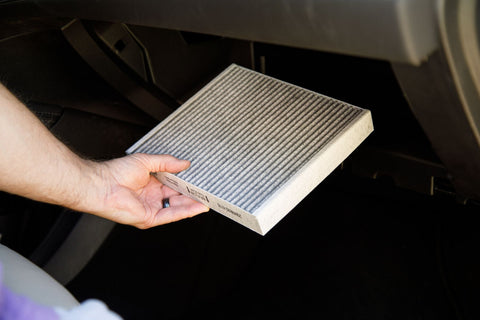Off roading culture has been around for a long time and is still as intriguing as it was when it first became a thing. However as with all other adventure sports, off roading is something most people are a little afraid to try. Whether it’s because we hear stories of punctures, clogged cabin air filters triggering allergies in the middle of nowhere or high damage costs, we all have our doubts.
But all stories aside, this skepticism mainly stems from danger, costs & doubt in one’s own ability. What people forget is that you don’t have to climb a 10-meter-high incline at an angle of 30 degrees on your first attempt. The countryside is full of dirt trails that are easy to navigate, frequently visited and are close enough to civilization to call AAA. You can even take your SUV to off-road parks that are scattered all across the United States. These parks offer a safe as well as controlled environment where beginners can learn under the guidance of professionals. Some even have their own rental services where you can try out a fully kitted out off-road machine! We’re talking heavy off-road tires, performance air filters and a lot more.
Plus, the danger, cost and self-doubt mentioned above can be managed, reduced and even completely negated if you keep the following points in mind.
1. Know Your Car - The Best Part About Off Road Forums
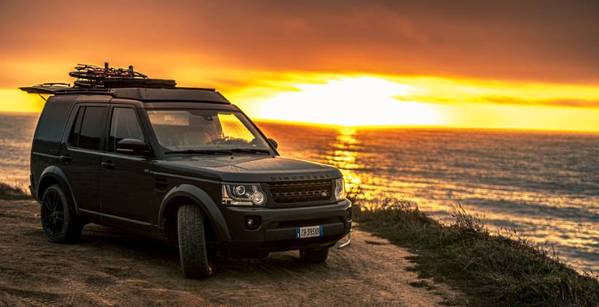
Not all cars are built the same. Which is why it is crucial to know the capability of your car, before taking it off-road. For example, Jeep has been around the off-road scene for a while. As a result, not only do Jeep customers have plenty of experiences to share, they have plenty of forums too.
In fact, off roading forums are easy to find and are full of active users with boat loads of passion for the art. So, it’s quite easy to scroll through forums and learn from the experiences of others who drove or currently drive the same car you do.
2. Stock or not? – New Tires, Cabin Air Filters & More
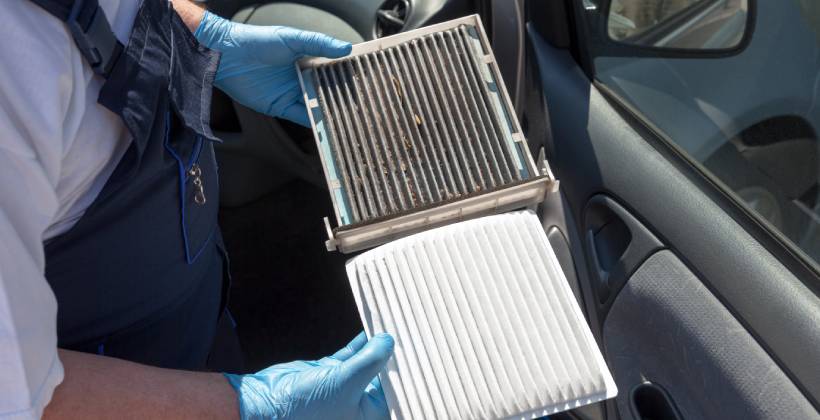
Off road tires, suspension, shock absorbers etc. are just a few from a long list of mods you can make to your car. But these modifications only become important when you have the experience and confidence to tackle more difficult trails. So, for your first time driving through an off-road trail in a national park, you just need a full fuel tank, GPS, a spare tire with all its tools (they should already be in the trunk) and a shovel.
However, if you are going to make a modification, start with one that will help protect you and your passengers off roading as well as on your way to work. Cabin air filters, with advanced filtration technology such as HEPA, are guaranteed to keep all the dust, pollen and diesel smoke out of your cabin. Which is why we recommend installing them instead of your standard cabin air filters before you go on an off-road adventure.
3. Have a Team – Never Go Alone
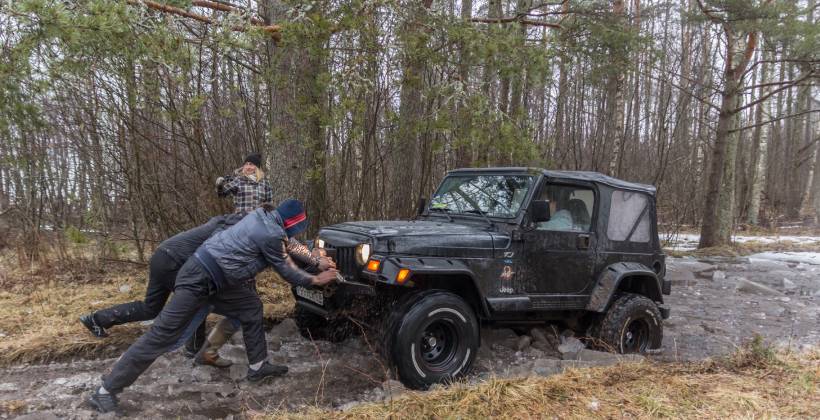
Odds are if you’re looking to try off-roading for the first time, you have a friend or a colleague who introduced you to it. Ask them to come along for your first adventure as their knowledge can help you build confidence and learn faster.
Plus, its always better to be out in the wilderness with a team, even if it’s only 2 people. What most people forget is that you can find yourself stuck and without reception on highways too! The danger of being stranded alone is even greater when you’re out in the wild. So, make sure you have an experienced friend tagging along.
4. The Weather – Avoid but Be Prepared for Rain
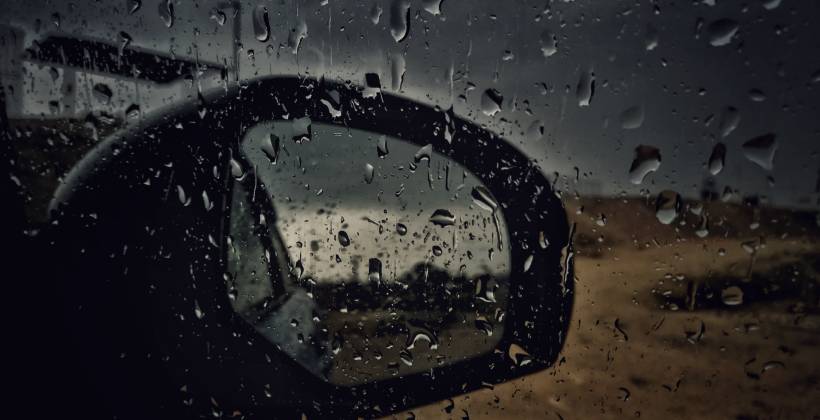
Rain isn’t something us humans are particularly good at predicting. Just look at the accuracy of our weather reports… its not great. Fortunately, our seasonal knowledge is better and we do know when certain regions are more likely to experience rain.
Rain on an off-road trail makes it difficult to find traction going up and down slopes. In fact, severe enough rain can reduce braking performance significantly even on a flat surface. But as we mentioned before, we can’t always predict it. So how can we be prepared for it?
The first thing to do when you encounter rain is to slow it down. Get on the gas slower and use the brakes gently. Too much power on the gas can cause wheel spin and too much pressure on the brake pedal can cause your wheels to lock. If you still find yourself struggling for grip, find a safe spot to pull over and air down all 4 tires. This increases the contact patch to the ground improves traction.
5. Have A Back Up Plan – Insurance, Tow Hooks & Friends
Off roading obviously has an element of risk. Even the most experienced off roaders in modern machinery get in trouble every now and then. In order to mitigate the risk of car damage, check if your insurance covers off road damage. If not, try and find an off-road insurance package that suits your need.
Additionally, keeping a tow hook and some cables in the trunk isn’t a bad idea. This can help get your car out of trouble. Last but not least, as mentioned before, always go with at least 1 other friend who has the experience you don’t. In case of emergencies, your experienced friend or friends can guide you and help you get out of the situation.
So don’t be shy! If you can keep the above points in mind, you can go on a little off-road adventure without trouble. Just remember to replace your cabin air filter if the going gets a little too dusty… You don’t want to be breathing dusty air a week later on your way to work…




